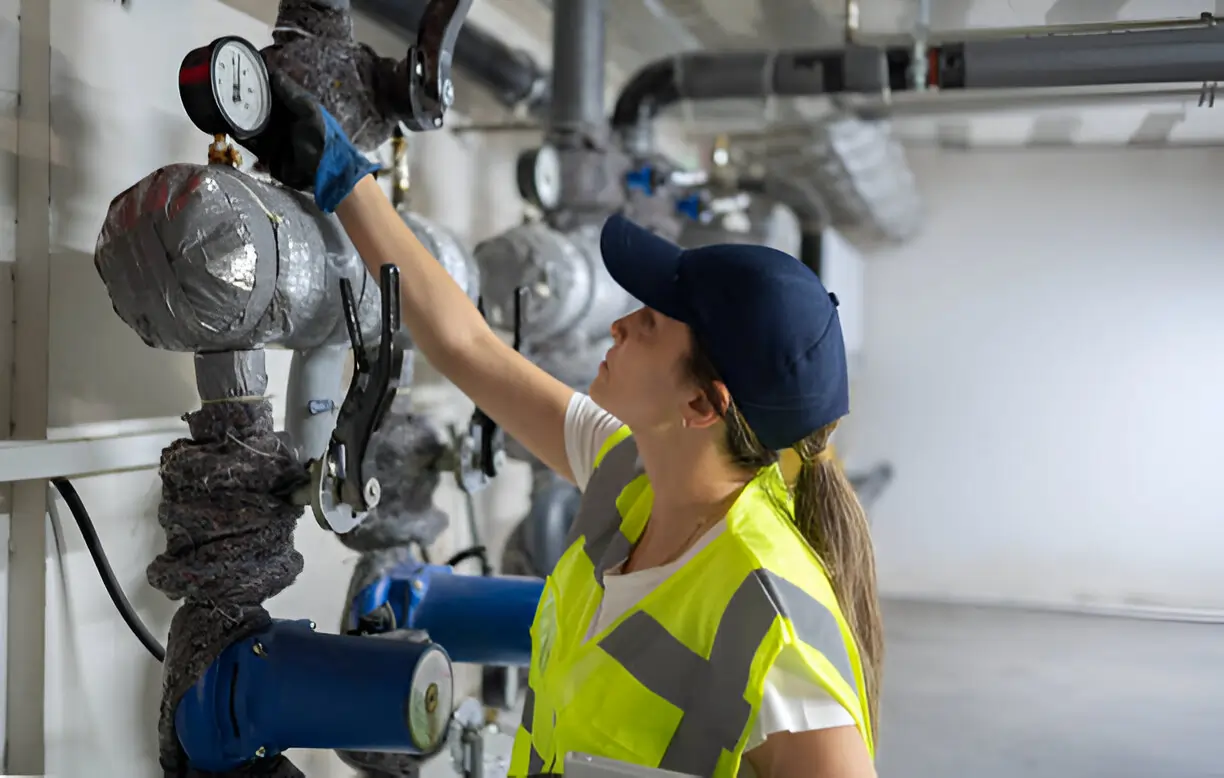As the temperatures drop, keeping your workplace warm and comfortable becomes a top priority. A well-maintained heating system doesn’t just ensure comfort; it also promotes productivity and energy efficiency. Preparing your workplace heating system ahead of the winter months can save businesses from costly repairs and unexpected disruptions.
Why Heating System Readiness Matters
An effective heating system is essential for maintaining a productive and safe work environment during the colder months. Neglecting essential maintenance can lead to unexpected breakdowns, escalated energy costs, and even damage to office equipment from fluctuating temperatures. Addressing heating system preparation early also avoids competing for service during the busy winter months when repair requests tend to increase significantly.
Prevent Workplace Disruptions
Heating system malfunctions during winter can halt operations, leaving employees without a comfortable working environment. This can lead to reduced productivity and employee dissatisfaction. Proper preparation ensures that heating is reliable, minimizing the risk of interruptions.
Reduce Energy Costs
Inefficient heating systems consume more energy to deliver the same level of warmth, leading to high utility bills. Proper maintenance significantly enhances system efficiency, helping businesses save on operational costs.
Extend Equipment Lifespan
Consistent upkeep of your heating system prevents the wear and tear caused by overuse or neglect. When issues are detected and resolved early, it ensures the equipment lasts longer and performs optimally.
Steps to Prepare Your Workplace Heating System
Taking a proactive approach ensures your system functions efficiently throughout the colder months. Here are key steps to get your heating system in top shape.
Schedule a Professional Inspection
Enlist a professional HVAC technician to examine and service your heating system. A trained technician will clean the components, check for worn parts, and ensure everything is functioning correctly. These inspections can also help detect minor problems before they escalate.
Replace or Clean Air Filters
Clogged air filters hinder airflow, forcing the system to work harder and consume more energy. Replacing or cleaning the filters improves air circulation, maintains indoor air quality, and keeps the system operating efficiently.
Test the Thermostat
Ensure your thermostat is functioning correctly. A faulty thermostat can cause the heating system to overheat or underheat the workplace, leading to discomfort and wasted energy. Consider upgrading to a programmable or smart thermostat for better control over workplace temperatures.
Inspect Ductwork for Leaks
Air leaks in ductwork can result in significant heat loss, forcing the system to work harder to maintain a consistent temperature. Have ducts inspected for leaks, blockages, or damage, and seal any problem areas to optimize performance.
Optimize Heating for Your Workspace
Proper heating management ensures even distribution of warmth throughout the workplace, creating a comfortable environment for employees and clients alike.
Clear Vents and Registers
Ensure that all vents and registers are unobstructed and free of debris. Furniture or equipment blocking vents can disrupt airflow and make heating inefficient. Periodically check and clean vents to prevent dust buildup.
Maintain Proper Humidity Levels
Dry air in the winter can make the workplace feel colder than it is. A humidifier can be used to maintain appropriate humidity levels, enhancing comfort and reducing the system’s workload.
Identify Warning Signs of System Issues
Recognizing potential problems early can save businesses time and money. Pay attention to these common warning signs:
- Hot and cold spots within the office, which signal uneven heating.
- Unusual noises, such as bangs or rattles, coming from the system.
- A noticeable rise in energy bills without a corresponding increase in usage.
If you notice any of these signs, it’s essential to act immediately rather than risk more significant issues during the heart of winter. While regular maintenance serves as preventive care, more extensive solutions may sometimes be necessary, such as furnace replacement in Herriman, to ensure continuous performance.
Plan for Emergencies
Winter weather can be unpredictable, and it’s wise to have contingency plans in place for emergencies. Equip your workplace with backup heating options, such as space heaters, and ensure all emergency exits and safety equipment are functional.
Stock Emergency Supplies
Prepare for potential power outages by stocking blankets, extra batteries, and water. Emergency preparation protects both employees and equipment during unexpected disruptions.
Educate Employees
Ensure employees understand how to report heating issues promptly and operate backup systems, if necessary. Clear communication minimizes downtime and maintains workplace efficiency.
Providing a warm and comfortable workspace encourages productivity and leaves a positive impression on employees and clients alike. Don’t wait until temperatures plunge—start preparing your heating system today to guarantee a smooth and successful cold season.
Read more: What Every Driver Should Know About Their Vehicle’s Performance – MuskaanHindi
